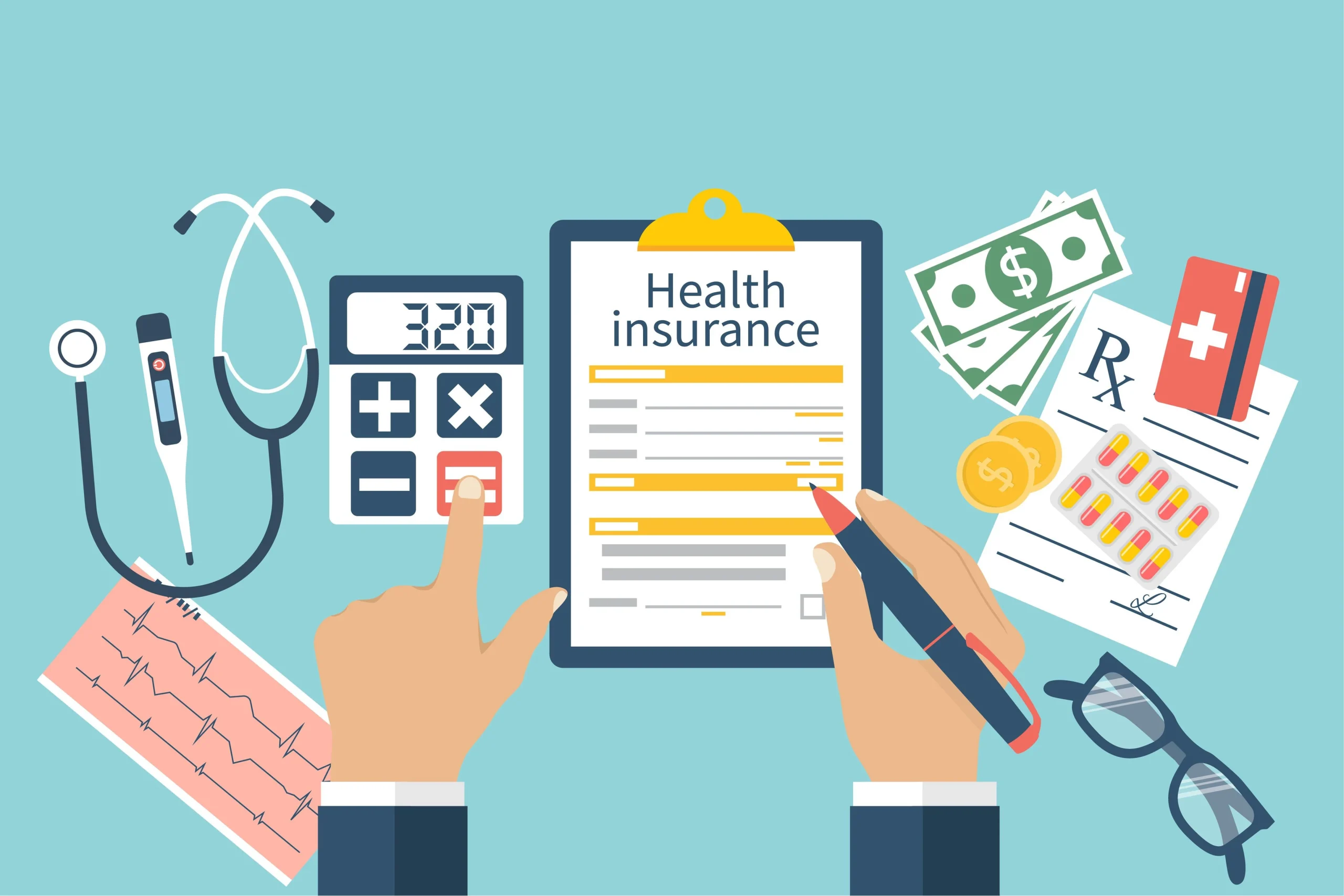In today’s world, healthcare costs are continually on the rise, making medical insurance a vital resource for many individuals and families. However, simply having medical insurance is not enough. To truly reap the benefits, it’s crucial to understand how to maximize your medical insurance benefits. This comprehensive guide will provide actionable tips and strategies to ensure you get the most out of your medical insurance plan.
Understanding Your Medical Insurance Plan
The first step in maximizing your medical insurance benefits is to thoroughly understand your plan. This includes knowing what your plan covers, your out-of-pocket costs, and the network of healthcare providers.
1. Review Your Policy Document
Your insurance policy document contains detailed information about what is covered and what is not. Pay close attention to the sections on covered services, exclusions, and limitations.
2. Know Your Deductibles, Copayments, and Coinsurance
Understanding these terms can help you anticipate your expenses. The deductible is the amount you must pay out-of-pocket before your insurance starts to cover costs. Copayments are fixed amounts you pay for specific services, and coinsurance is the percentage of costs you share with your insurance company after meeting your deductible.
3. Check the Provider Network
Most insurance plans have a network of preferred providers. Using in-network providers typically costs less than using out-of-network providers. Always verify that your healthcare provider is in-network to avoid unexpected charges.
Utilize Preventive Services
Many medical insurance plans cover preventive services at no additional cost to you. These services can help detect health issues early, reducing the need for more expensive treatments later.
4. Take Advantage of Annual Check-Ups
Annual check-ups and routine screenings are often covered by insurance and can help catch potential health issues early.
5. Vaccinations
Vaccinations are usually covered under preventive care. Ensure you and your family are up-to-date with all recommended vaccinations.
6. Wellness Programs
Some insurance plans offer wellness programs that provide incentives for maintaining a healthy lifestyle. Participating in these programs can lead to lower premiums and other benefits.
Manage Your Medical Expenses
Effectively managing your medical expenses can significantly impact your overall healthcare costs.
7. Use a Health Savings Account (HSA) or Flexible Spending Account (FSA)
These accounts allow you to set aside pre-tax money for medical expenses, reducing your taxable income and helping you save on out-of-pocket costs.
8. Compare Costs
Before undergoing any major procedures, compare costs between different providers and facilities. Many insurance companies offer cost comparison tools to help you find the most affordable options.
9. Request Generic Medications
Generic medications are typically much cheaper than brand-name drugs. Ask your doctor if a generic version of your prescription is available.
Maximize Your Benefits During Open Enrollment
Open enrollment is the period when you can make changes to your insurance plan. Taking full advantage of this time can help you select the best plan for your needs.
10. Evaluate Your Current Plan
Review your current plan’s performance over the past year. Consider any changes in your health status or anticipated medical needs.
11. Compare Plans
Don’t automatically renew your existing plan. Compare different plans to see if there’s a better option available, especially in terms of coverage and cost.
12. Consider a Health Maintenance Organization (HMO) or Preferred Provider Organization (PPO)
HMOs typically have lower premiums but require you to use a network of doctors. PPOs offer more flexibility in choosing providers but come with higher premiums. Choose the one that best suits your healthcare needs.
Stay Informed and Proactive
Being informed and proactive can help you avoid unnecessary costs and ensure you’re using your benefits effectively.
13. Keep Records
Maintain detailed records of all your medical expenses, claims, and communications with your insurance company. This can help resolve any disputes and ensure you receive the benefits you’re entitled to.
14. Appeal Denied Claims
If your insurance company denies a claim, don’t hesitate to appeal. Provide all necessary documentation and ask your healthcare provider to support your appeal.
15. Understand the Explanation of Benefits (EOB)
Your EOB provides details about what your insurance covers and what you owe. Review these documents carefully to ensure there are no errors.
Utilize Telehealth Services
Telehealth services have become increasingly popular and are often covered by insurance plans. These services can save you time and money.
16. Consult with Healthcare Providers Online
Many insurance plans cover virtual visits with healthcare providers. These can be more convenient and less expensive than in-person visits.
17. Access Specialists Remotely
Telehealth can provide access to specialists who may not be available in your area, ensuring you receive the best possible care without the need for travel.
Optimize Your Prescription Drug Coverage
Prescription drugs can be a significant expense, but there are ways to manage these costs effectively.
18. Use Mail-Order Pharmacies
Many insurance plans offer discounts for using mail-order pharmacies for long-term medications.
19. Ask for a 90-Day Supply
Getting a 90-day supply of medications can be more cost-effective than a 30-day supply.
20. Check Formulary Lists
Insurance companies have formulary lists that categorize drugs into different tiers. Opt for medications in lower tiers to save on costs.
Leverage Additional Benefits
Many insurance plans offer additional benefits that you might not be aware of. Make sure to take full advantage of these.
21. Mental Health Services
Mental health is just as important as physical health. Many insurance plans cover counseling and therapy sessions.
22. Vision and Dental Coverage
Some plans offer vision and dental coverage either as part of the plan or as an add-on. Utilize these benefits to maintain your overall health.
23. Fitness Programs and Discounts
Some insurance plans provide discounts on gym memberships or access to fitness programs. Staying active can improve your health and reduce healthcare costs in the long run.
Communicate with Your Insurance Company
Maintaining open communication with your insurance company can help you avoid misunderstandings and maximize your benefits.
24. Ask Questions
If you’re unsure about any aspect of your coverage, don’t hesitate to contact your insurance company for clarification.
25. Notify Them of Changes
Inform your insurance company of any significant changes in your health or personal circumstances. This can impact your coverage and benefits.
26. Stay Updated on Policy Changes
Insurance policies can change annually. Make sure you’re aware of any updates to your plan to avoid surprises.
Plan for the Unexpected
Healthcare needs can be unpredictable. Planning ahead can help you manage unexpected medical expenses more effectively.
27. Emergency Savings
Having an emergency savings fund can provide a financial cushion in case of unexpected medical expenses.
28. Understand Emergency Coverage
Know what your plan covers in the event of an emergency, including urgent care and emergency room visits.
29. Consider Supplemental Insurance
Supplemental insurance policies, such as critical illness or accident insurance, can provide additional coverage and peace of mind.
Conclusion
Maximizing your medical insurance benefits requires a proactive approach and a thorough understanding of your plan. By staying informed, utilizing preventive services, managing your medical expenses, and taking advantage of additional benefits, you can ensure you get the most out of your medical insurance. Regularly review and adjust your strategies to adapt to changes in your health and insurance policies. With these tips, you can navigate the complexities of medical insurance and secure the best possible care for yourself and your family.
Remember, your health is your most valuable asset. Taking the time to understand and maximize your medical insurance benefits is an investment in your well-being and financial security. Stay informed, stay proactive, and take full advantage of the resources available to you.



